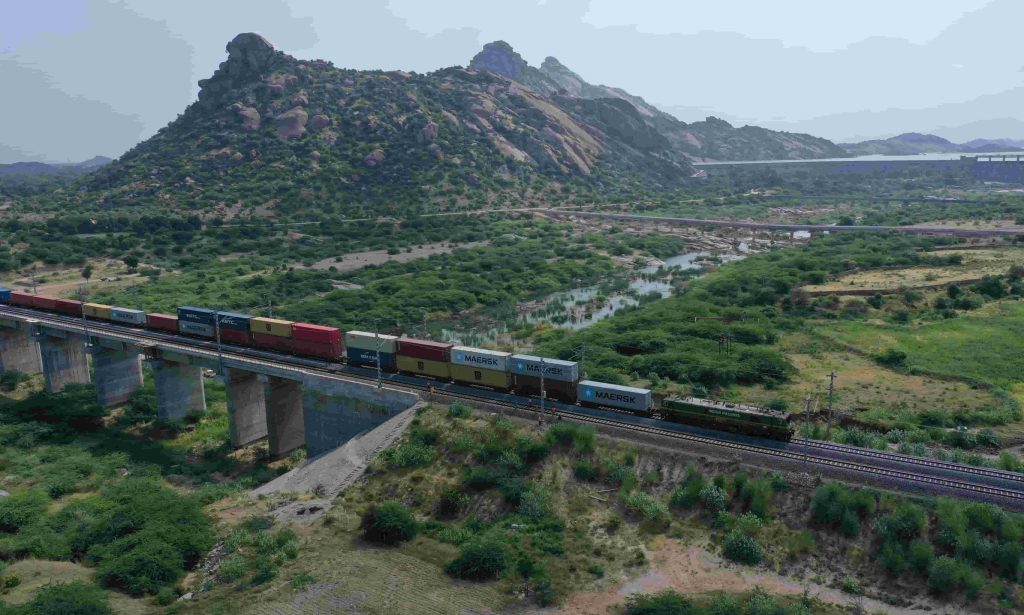SYLLABUS
GS3: Infrastructure: Energy, Ports, Roads, Airports, Railways etc.
Context:
The Eastern and Western freight corridors have jointly recorded a 47% increase in freight train operations in 2024-25 as compared to 2023-24.
More on the News
- The number of train trips rose from 88,225 in 2023-24 to 1,30,116 in 2024-25.
- However, the vacant train trips were about 34% in 2024-25, mainly due to coal and cement wagons returning empty, as they can’t be used for other products.
- Of the total trips in 2024-25, container products accounted for 24%, coal for 19% and miscellaneous items for 11%, while other commodities, such as cement and clinker, iron and steel, foodgrains, fertiliser, and POL (Petroleum, Oil, and Lubricants), varied between 1 and 4%.
About Dedicated Freight Corridor (DFCs)

- DFCs are exclusive freight-only railway corridors, designed for faster, heavier, and longer freight trains. They allow double-stack container trains (especially on WDFC), heavier axle load trains (up to 32.5 tonnes), and reduce congestion on passenger routes.
- This improves the supply chain for the industry players located at economic centres along the way, leading to growth of export-import traffic too.
- Presently, there are two dedicated freight corridors which have been constructed and are operated by DFCCIL.
- Eastern Dedicated Freight Corridor (EDFC):
- The 1,337-km-long EDFC runs from Ludhiana in Punjab to Sonnagar in Bihar. It is 100% operational.
- The EDFC route passes through states of Punjab, Haryana, Uttar Pradesh, and Bihar.
- Western Dedicated Freight Corridor (WDFC):
- The 1,506-km-long WDFC runs from Dadri in Uttar Pradesh to Jawaharlal Nehru Port Terminal in Mumbai.
- At present, 1404 km, which is 93.2%, is used for train operations. The remaining 102 km from Vaitrana to Jawaharlal Nehru Port Trust (JNPT) is scheduled to be commissioned in December 2025.
- The WDFC passes through states of Uttar Pradesh, Haryana, Rajasthan, Gujarat, and Maharashtra.
Significance Dedicated Freight Corridor
- Operational Efficiency: DFCs are expected to reduce freight cost by 30–40%, moving logistics cost (currently approx. 13–14% of GDP) closer to global standards (8–9%).
- Enhance Speed: Average speed of DFCs is 60kmph, compared to 20kmph on Indian Railways freight service.
- Growth Opportunity: DFCs can enable railways to increase their freight share from 25% to 40%.
- Streamlined Railways: These can decongest railway networks by moving 50-70% of good trains.
- Sustainable Impact: DFCs can cut carbon emissions by 450 million over the next 30 years.
Dedicated Freight Corridor Corporation of India Limited (DFCCIL)
- DFCCIL is a wholly owned company of the Ministry of Railways, registered under the Companies Act 1956 and was incorporated on 30th October 2006.
- Its primary purpose is to plan, construct, operate, and maintain dedicated freight railway lines.
Sources:
The Hindu
Swarajyamag
Sansad

